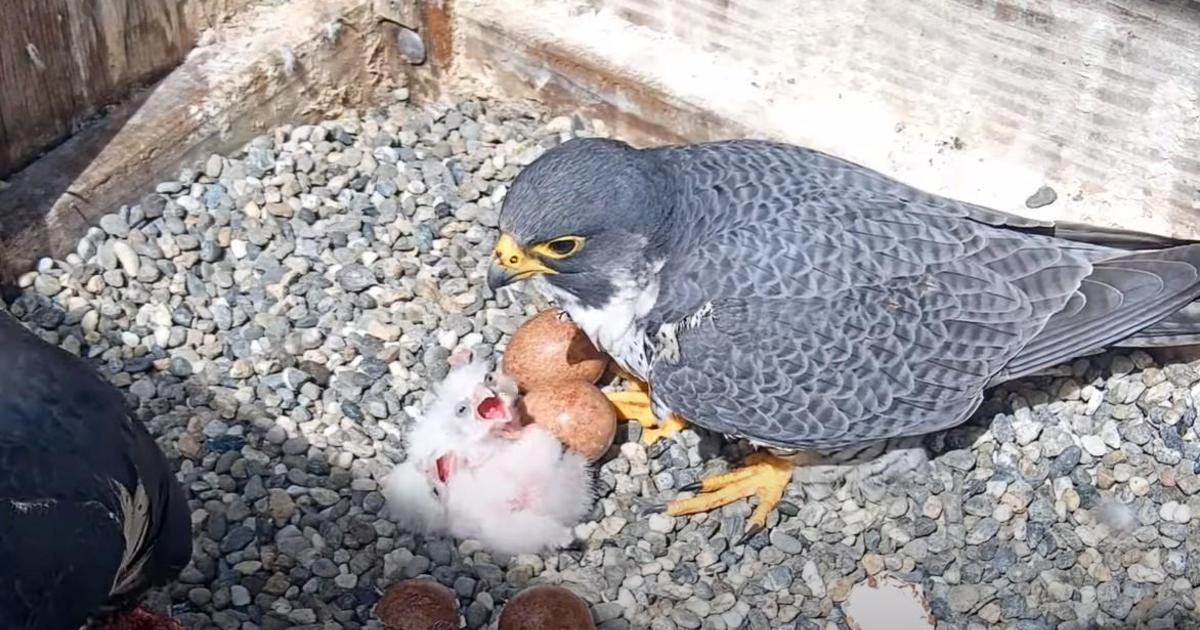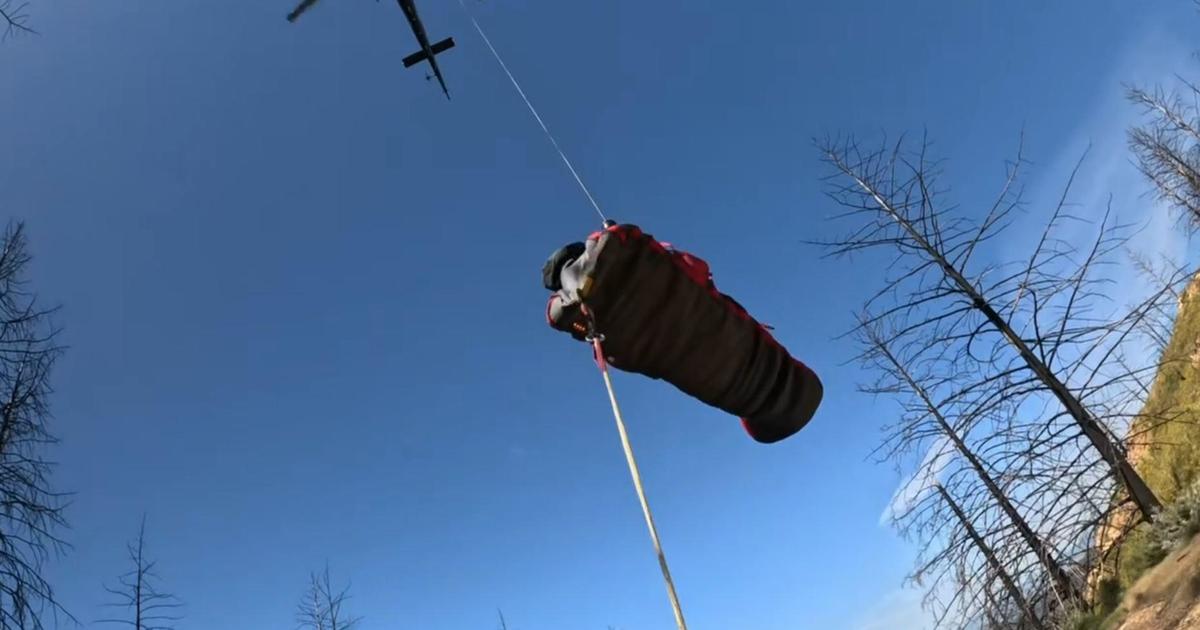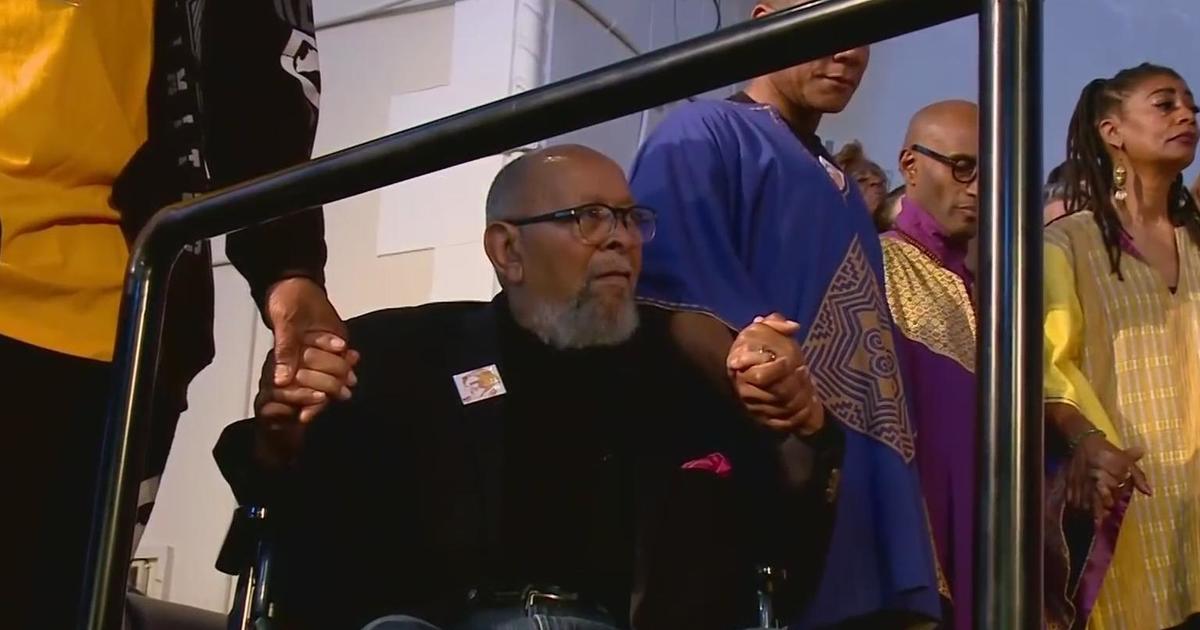US Journalist Recovers; President Obama's Ebola 'Czar' Gets To Work
WASHINGTON (CBS/AP) — A TV news cameraman treated for Ebola was ready to go home Wednesday, the fifth patient transported from West Africa to recover at a U.S. hospital, as President Barack Obama brought together top aides and his new "czar" to coordinate a national response should an Ebola outbreak happen.
Two nurses remain hospitalized after catching the virus from a Liberian man who came down with Ebola symptoms after arriving in the U.S. and died at a Dallas hospital. Because of their cases, the federal Centers for Disease Control and Prevention issued more stringent safety guidelines this week and is working with states to spread them to health care workers across the country.
"Recovering from Ebola is a truly humbling feeling," American video journalist Ashoka Mukpo said in a statement Tuesday from the Nebraska Medical Center. "Too many are not as fortunate and lucky as I've been. I'm very happy to be alive."
More Coverage On Ebola:
The virus has killed more than 4,500 people in West Africa, nearly all in Liberia, Sierra Leone and Guinea. Mukpo, of Providence, Rhode Island, got it while working in Liberia as a freelance cameraman for NBC and other media outlets. He has been at the Nebraska hospital since Oct. 6, the second Ebola patient treated there.
The hospital said that tests show Mukpo is now free of the virus and he would be allowed to leave its biocontainment unit Wednesday.
Debra Berry, the mother of Dallas nurse Amber Vinson, said Tuesday her daughter is "doing OK, just trying to get stronger" while being treated at Emory University Hospital in Atlanta. Fellow Dallas nurse Nina Pham's condition has been upgraded from fair to good at the National Institutes of Health outside Washington.
Meanwhile, members of California's largest nurses' union met with Gov. Jerry Brown and other health care experts in Sacramento Tuesday a day after federal health officials issued new guidelines for health care workers treating Ebola patients.
Amid increasing anxiety over the Ebola response, the largest union of registered nurses in the United States is calling on President Obama to mandate uniform standards and protocols for the treatment of the virus.
Deborah Berger, who is co-president of the Oakland-based National Nurses United, said they have been contacted by nurses from Texas Health Presbyterian Hospital in Dallas reporting ill-preparation by the hospital that treated Ebola patient Thomas Duncan, including leaving him in areas with other patients and sending his lab specimens though the hospital's pneumatic tube delivery system for sending samples.
"The result is that the entire tube system, [through] which all lab specimens are sent, was potentially contaminated," she said at a press conference last week.
Executive director of NNU Rose Ann DeMoro said the union has sent a letter to the president, urging him to mandate hospitals provide full bio-containment suits, hands-on training, a 2:1 nurse-to-patient staffing ratio and more for Ebola cases.
Although California has no confirmed cases of Ebola, Bay Area public health officials aren't taking any chances.
Amy Nichols, Director of Infection Control at UCSF, said hospital workers are regularly trained in infection prevention.
"They're the same strategies that were in place in the early '80s when HIV came on the scene. As a matter of fact that's what drove many of these strategies. They work when they're done correctly," she said.
Ebola patients aren't contagious until they start displaying symptoms so it's critical that if hospitals start seeing people with flu-like symptoms who have either traveled to or been in contact with someone in an Ebola-infected area, they let officials know immediately.
As the CDC and Department of Homeland Security beefed up screening at five of the nation's busiest international airports in early October, federal officials could decide if California airports are next, depending on the number of international passengers and travel patterns.
San Francisco International and Los Angeles International airports already have CDC quarantine centers that are ready when needed, but unlike the five airports doing the screenings, none of the three Bay Area international airports have direct flights to Africa.
At the White House, Obama was meeting with his new Ebola coordinator Ron Klain and top aides Wednesday afternoon.
Under heavy criticism for the government's handling of the first Ebola case diagnosed within the U.S., Obama reached for help last week from Ron Klain, a veteran political operator and former chief of staff to Vice President Joe Biden. Klain will coordinate the array of federal agencies dealing with Ebola in the U.S. and helping to tackle the crisis in West Africa.
The Obama administration has resisted pressure to ban travel from the Ebola-stricken countries but was tightening rules in an effort to ensure that all arrivals from the three nations are screened for the disease.
Under restrictions taking effect Wednesday, air travelers from Liberia, Sierra Leone and Guinea must enter the United States through one of five airports doing special screenings and fever checks. A handful of people had been arriving at other airports and missing the checks.
A total of 562 air travelers have been checked in the screenings that started Oct. 11 at New York's Kennedy airport and expanded to four others last week, Homeland Security officials said. Four were taken from Washington's Dulles airport to a local hospital. None had Ebola.
The other airports are Newark's Liberty, Chicago's O'Hare and Atlanta's Hartsfield-Jackson.
The tightened rules for West African travelers come as Rwanda — an Ebola-free country in East Africa — said it would begin checking visiting Americans for the disease because of the three cases that occurred in the U.S.
Many U.S. lawmakers and members of the public have been pushing for a ban on travel into the United States from Liberia, Sierra Leone and Guinea. Obama and federal health authorities say that could make the situation worse, by making it harder for foreign doctors and aid workers to get help to nations that desperately need it and can't stop the outbreak on their own.
There are no direct flights from the three countries into the U.S. The government has said as many as 150 fliers per day arriving by various multi-leg routes was typical, but that number has dropped since the Ebola outbreak began in March.
When the Ebola screenings began at five airports, U.S. officials said about 6 percent of arrivals from the affected nations were coming through other airports that didn't have the fever checks.
By changing that, Homeland Security Secretary Jeh Johnson said, "We currently have in place measures to identify and screen anyone at all land, sea and air ports of entry into the United States who we have reason to believe has been present in Liberia, Sierra Leone or Guinea in the preceding 21 days."
Homeland Security officials at the airports use no-touch thermometers to check for fever, which can be a symptom of Ebola infection. People who have been infected with the virus may not develop a fever and illness for up to 21 days, however. The Liberian patient, Thomas Eric Duncan, wasn't showing symptoms when he entered the United States, officials said.
In addition to Mukpo, three American doctors and an aide worker, all infected in Liberia or Sierra Leone, have been treated at the Nebraska Medical Center or Emory University Hospital in Atlanta and recovered.
TM and © Copyright 2014 CBS Radio Inc. and its relevant subsidiaries. CBS RADIO and EYE Logo TM and Copyright 2014 CBS Broadcasting Inc. Used under license. All Rights Reserved. This material may not be published, broadcast, rewritten. The Associated Press contributed to this report.



